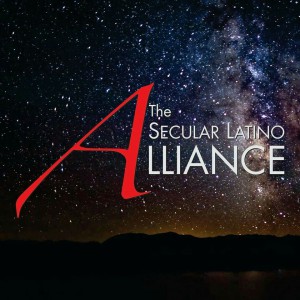Why the Secular Latino Alliance—and AHA’s Social Justice Alliances—Need to Exist

“As a humanist, this is very off-putting.”
“I don’t see the point.”
“Humanists don’t need any other labels.”
These are just a few of the comments that were left on the American Humanist Association’s Facebook page after they announced the launch of their new social justice advocacy campaigns: Black Humanist Alliance, LGBTQ Humanist Alliance, and Feminist Humanist Alliance. While a lot of people might feel that these advocacy campaigns are unnecessary, I can assure you that not everybody feels the same way.
My name is Sal Villareal. I am an atheist, a humanist, a secularist, and for my entire life, I’ve also used another label: Latino.
I know what you’re thinking. Why are you labeling yourself? Why not just call yourself a human? Well, my answer is simple: I use Latino because that is the word that I feel best describes me.
I’m a second generation Mexican-American, born and raised in the Midwest. My parents were both born in the United States, and they each had parents who came from Mexico. A lot of my extended family members speak both Spanish and English. They celebrate Cinco de Mayo and Fourth of July, Halloween and el Dia de los Muertos, and nearly all of them are Catholic.
I didn’t come to humanism early in life. I was raised a non-practicing Catholic in a superstitious household. I wasn’t baptized as a baby and never had a confirmation. And while it wasn’t common for us to go to church, my mother always made sure we knew about Jesus Christ. We would say our prayers every night before bed, and when we had nightmares, my mother would make us say four Hail Marys before we went back to sleep. We had a Bible in the house that was wrapped in velvet and kept in a drawer, and we once buried blessed medals in the yard to protect our house from evil spirits (the Cucuy was hiding in every shadow, causing every bump in the night).
So when I realized I was an atheist a little over a year ago, I did what seemed natural—I sought out people who were just like me. I googled every phrase I could think of: Latino Atheists, Mexican Atheists, Ex-Catholic Atheists. No matter what I typed, I couldn’t find what I was looking for. I eventually found a local atheist community and settled into a Facebook group for friendly atheists. I decided that there probably weren’t a lot of Latino atheists out there, that I was probably one of very few.
But as I monitored the message boards, they started showing up one by one. They started asking questions that were common to Latinos. “My son is sick, and my mom thinks it’s mal de ojo. What should I do?” “My Mexican family wants us to baptize my daughter. How do I tell them no?” And while many people were eager to help, their answers didn’t quite grasp the severity of their situations. They didn’t understand how Latino parents can be, how much religion is tied into their everyday lives, and the consequences a Latino person might have to endure if they told their families that they no longer believed. As I watched Latinos come and leave dissatisfied, I realized that there was a need for secular Latino advocacy.
So with the help of a few friends that I met online, we started a support group for Latino nonbelievers. We did it as a way to reach out, to bring Latinos together who were struggling with leaving religion and who were seeking advice from people who were just like them.
Much like the members of the Black community, the LGBTQ community, and the feminist community, we all have different struggles. Forming specifically focused advocacy groups isn’t about segregation, it’s about outreach. It’s about reaching out to specific groups of people in an effort to help them transition. People have a tendency to feel more comfortable when others self-identify the same way they do.
“Humanism encompasses a variety of nontheistic views while adding the important element of a comprehensive worldview and set of ethical values – values that are grounded in the philosophy of the Enlightenment, informed by scientific knowledge, and driven by a desire to meet the needs of people in the here and now.”
These were the words that stuck out to me when I first found the American Humanist Association, when I first realized that humanism described me. And I can say for sure that the needs of the people are not always the same. Don’t you think it’s best to reach all people in the way that best helps them? I sure do.
